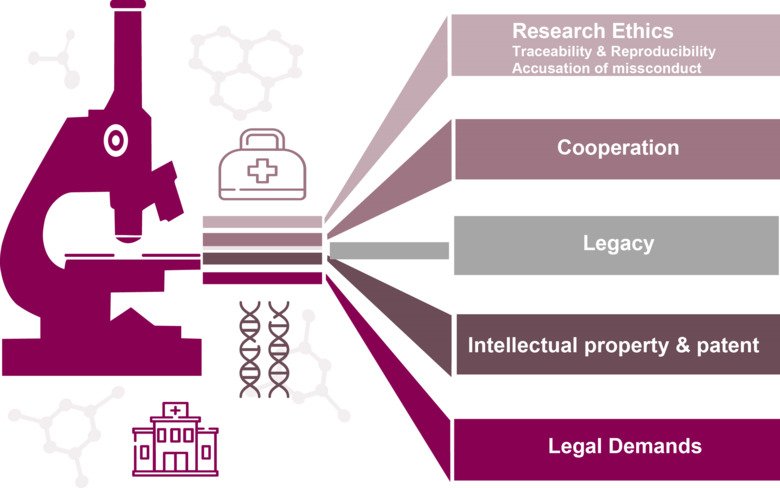Why should research be documented?
Research documentation at KI should be done in such a way that it is possible for employees and external colleagues to follow and review the research
The research data that employed researchers collect or generate through a research project belongs to the university. KI owns all the documentation and research data you create at the university. This also applies in case of external financing. As an academic researcher, you have though the copyright to the research and education material you create, as well as the ownership of your patentable inventions (the so-called "Professor's privilege" or so-called "lärarundantaget").
For research projects conducted in collaboration with other universities or stakeholders, it is important to establish agreements to regulate collaboration and ownership of research results. In cases of collaboration where results are to be transferred or otherwise made available to a collaboration partner, KI will secure the agreement of the researcher to transfer or license the intellectual property rights to the partner.
KI has a responsibility to protect data from eg. unauthorized access, and that KI decides to what extent research data should be disclosed in accordance with, e.g. the principle of public access.
If you leave KI, you are not allowed to bring research data to the new university without permission. If you want continued access to data, you can, together with the new university, apply the principle of public disclosure and request that data is disclosed.
In addition to your obligations to KI, a number of reasons justify research documentation:

Why to document research
Keeping your research organized through documentation is one of the basic principles of research ethics. Further, proper documentation is key to being able to account for the research process (Swedish Research Council, 2024).
For reviewing and troubleshooting data collection and analysis, documentation is pivotal. The same goes for reproduction of research results. Documentation about data ("metadata") is essential to verify or falsify results.
In case of an allegation of research misconduct or fraud it is pivotal to be able to show documentation of what has been done, by whom, and when.
Documentation is vital to avoid unnecessary duplication of research activities and to enhance collaboration between peers.
Archived research documentation is part of KI's legacy and a resource for historians and scholars of science.
Intellectual property and patent. Documentation of intellectual work is a prerequisite for patent applications.
Documentation ensures that legal demands are met.
Contact Research data office
If you have questions regarding research data management please contact rdo@ki.se
